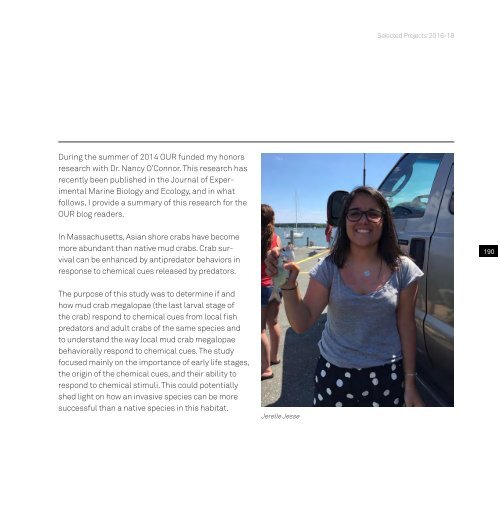Undergrad_Book_16-18_Pge_View_Print_no print marks_compressed
Create successful ePaper yourself
Turn your PDF publications into a flip-book with our unique Google optimized e-Paper software.
Selected Projects 20<strong>16</strong>-<strong>18</strong><br />
During the summer of 2014 OUR funded my ho<strong>no</strong>rs<br />
research with Dr. Nancy O’Con<strong>no</strong>r. This research has<br />
recently been published in the Journal of Experimental<br />
Marine Biology and Ecology, and in what<br />
follows, I provide a summary of this research for the<br />
OUR blog readers.<br />
In Massachusetts, Asian shore crabs have become<br />
more abundant than native mud crabs. Crab survival<br />
can be enhanced by antipredator behaviors in<br />
response to chemical cues released by predators.<br />
190<br />
The purpose of this study was to determine if and<br />
how mud crab megalopae (the last larval stage of<br />
the crab) respond to chemical cues from local fish<br />
predators and adult crabs of the same species and<br />
to understand the way local mud crab megalopae<br />
behaviorally respond to chemical cues. The study<br />
focused mainly on the importance of early life stages,<br />
the origin of the chemical cues, and their ability to<br />
respond to chemical stimuli. This could potentially<br />
shed light on how an invasive species can be more<br />
successful than a native species in this habitat.<br />
Jerelle Jesse



